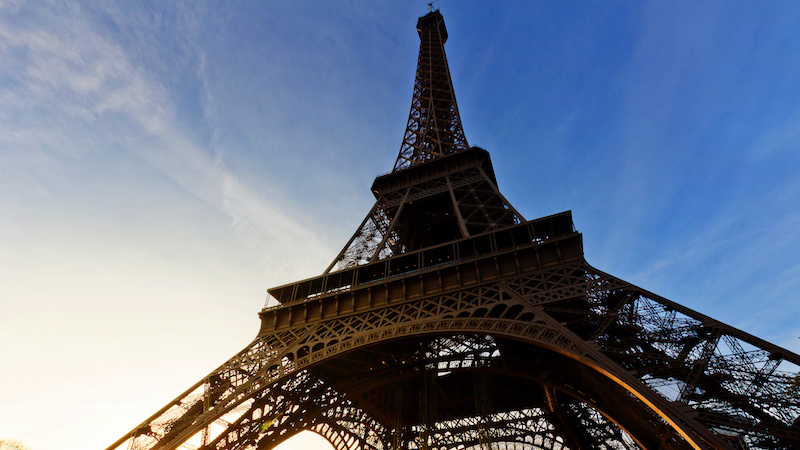The French government has proposed legislation committing the country to carbon-neutrality by 2050.
The changes would expand the role of nuclear energy and drop concrete emissions targets for the middle of the century, raising concerns among environmentalists.
A proposal was sent to the economic, social and environmental council on 7 February. A copy was published by environment news site Reporterre.
If the bill is adopted, France would:
- Drop its 2050 goal of lowering greenhouse gas emissions to a quarter of 1990 levels, in favour of a target of carbon neutrality by 2050
- Postpone a goal to reduce the share of nuclear power from 75% today to 50%, from 2025 to 2035
- Walk back a commitment to reduce national energy consumption. The target of cutting energy consumption by 20% by 2030 is replaced with 17%. The final goal of slashing energy use by 50% by 2050 remains untouched
- Hike a target to reduce the proportion of energy powered by fossil fuels by 30% by 2030 to 40%
Laurence Tubiana, CEO of the European Climate Foundation, tweeted that she was “delighted to see the 2050 carbon neutrality target appear in the law”, but that the policies to reach the goal remained undefined.
European Commission sets out path to net-zero emissions by 2050
“The objective of carbon neutrality, which is included in the Paris Agreement, is an ambitious objective and its inclusion in law is a strong political signal,” Nicolas Berghmans, a researcher at the French climate thinktank IDDRI, told Climate Home News.
He said carbon neutrality meant unavoidable emissions, “particularly in agriculture and certain industrial sectors must be fully covered by carbon sinks”. But he said the availability of natural carbon sinks, such as forests, was limited and carbon capture technology was not “mature”.
“The principle of carbon neutrality therefore implies above all a drastic reduction in our greenhouse gas emissions,” said Berghmans.
He attributed the slight regression on energy consumption reduction targets to France’s delay in carrying out “an ambitious transition in the mobility and building sectors in particular”.
“We are shocked. We see that things are not progressing on housing renovation,” Anne Bringaut, a spokeswoman for the Network for energy transition, told Franceinfo on Friday. The backslide proved that “trade-offs are not in line with the ecology or the reduction of energy bills for households,” she said.
The carbon-neutral 2050 target would place France’s goals in line with one of several options proposed by the European Commission for the EU’s long term goal. Both Costa Rica and New Zealand have enshrined similar goals, with the UK considering legislation.
Last year, UN scientists made clear that meeting the 1.5C target of the Paris Agreement would require global emissions to hit net-zero by 2050. Given France’s high level of development, simply aligning with those numbers is unlikely to be viewed as the country’s fair share.
Some green groups attacked the carbon neutral language as too vague, when compared to concrete cuts. Yves Maringnac, who leads the anti-nuclear World Information Service on Energy, tweeted that the lack of a concrete target for emissions cuts left “the door open for less reduction and more ‘compensation’”. He said the law should include both a hard target for emissions and a neutral goal.
France’s minister for the ecological transition François De Rugy said the new goal was “far more ambitious” than the original 75% reduction. He said the new legislation would lead to an 87.5% cut.
The bill would also create an independent council on climate policy, featuring some of the country’s top minds on global warming, including Tubiana. She said the council would ensure the carbon neutral target was met without using carbon credits and with only limited use of carbon capture and storage technology.
Global issues need global coverage
CHN is dedicated to bringing you the best climate reporting from around the world. It’s a huge job and we need your help.
Through our Patreon account you can give as little or as much as you like to support our work. It’s safe and easy to sign up.
